Volker Haarslev
A Framework for Parallelizing OWL Classification in Description Logic Reasoners
Jun 18, 2019



Abstract:In this paper we report on a black-box approach to parallelize existing description logic (DL) reasoners for the Web Ontology Language (OWL). We focus on OWL ontology classification, which is an important inference service and supported by every major OWL/DL reasoner. We propose a flexible parallel framework which can be applied to existing OWL reasoners in order to speed up their classification process. In order to test its performance, we evaluated our framework by parallelizing major OWL reasoners for concept classification. In comparison to the selected black-box reasoner our results demonstrate that the wall clock time of ontology classification can be improved by one order of magnitude for most real-world ontologies.
Learning the Right Expansion-ordering Heuristics for Satisfiability Testing in OWL Reasoners
Apr 20, 2019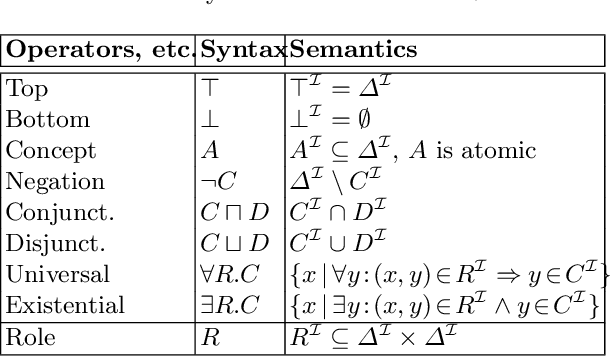


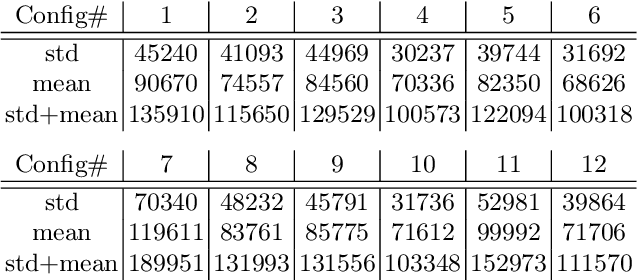
Abstract:Web Ontology Language (OWL) reasoners are used to infer new logical relations from ontologies. While inferring new facts, these reasoners can be further optimized, e.g., by properly ordering disjuncts in disjunction expressions of ontologies for satisfiability testing of concepts. Different expansion-ordering heuristics have been developed for this purpose. The built-in heuristics in these reasoners determine the order for branches in search trees while each heuristic choice causes different effects for various ontologies depending on the ontologies' syntactic structure and probably other features as well. A learning-based approach that takes into account the features aims to select an appropriate expansion-ordering heuristic for each ontology. The proper choice is expected to accelerate the reasoning process for the reasoners. In this paper, the effect of our methodology is investigated on a well-known reasoner that is JFact. Our experiments show the average speedup by a factor of one to two orders of magnitude for satisfiability testing after applying learning methodology for selecting the right expansion-ordering heuristics.
Optimizing Heuristics for Tableau-based OWL Reasoners
Oct 24, 2018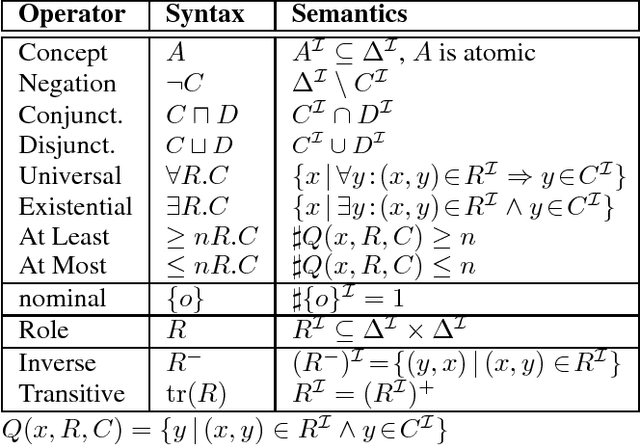



Abstract:Optimization techniques play a significant role in improving description logic reasoners covering the Web Ontology Language (OWL). These techniques are essential to speed up these reasoners. Many of the optimization techniques are based on heuristic choices. Optimal heuristic selection makes these techniques more effective. The FaCT++ OWL reasoner and its Java version JFact implement an optimization technique called ToDo list which is a substitute for a traditional top-down approach in tableau-based reasoners. The ToDo list mechanism allows one to arrange the order of applying different rules by giving each a priority. Compared to a top-down approach, the ToDo list technique has a better control over the application of expansion rules. Learning the proper heuristic order for applying rules in ToDo lis} will have a great impact on reasoning speed. We use a binary SVM technique to build our learning model. The model can help to choose ontology-specific order sets to speed up OWL reasoning. On average, our learning approach tested with 40 selected ontologies achieves a speedup of two orders of magnitude when compared to the worst rule ordering choice.
Handling Nominals and Inverse Roles using Algebraic Reasoning
Oct 01, 2018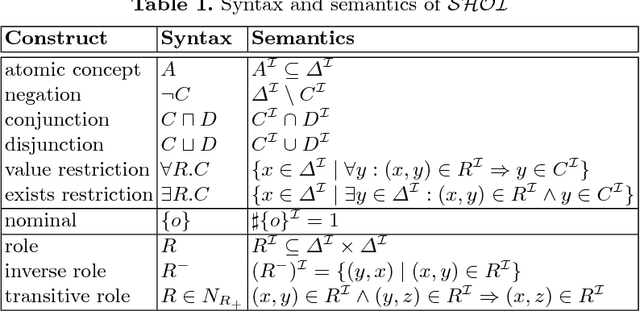
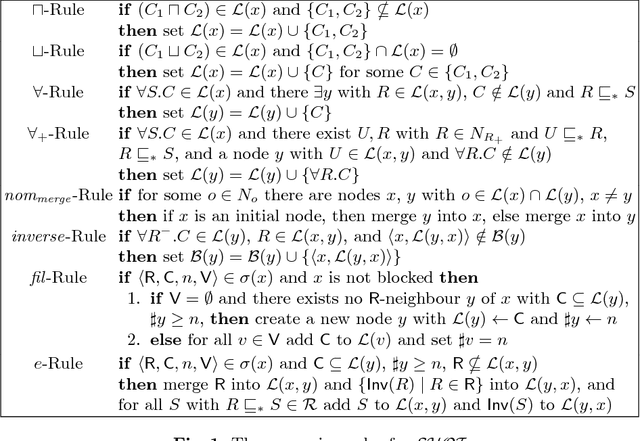
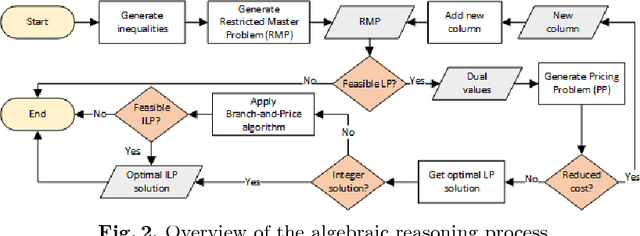

Abstract:This paper presents a novel SHOI tableau calculus which incorporates algebraic reasoning for deciding ontology consistency. Numerical restrictions imposed by nominals, existential and universal restrictions are encoded into a set of linear inequalities. Column generation and branch-and-price algorithms are used to solve these inequalities. Our preliminary experiments indicate that this calculus performs better on SHOI ontologies than standard tableau methods.
Managing Requirement Volatility in an Ontology-Driven Clinical LIMS Using Category Theory. International Journal of Telemedicine and Applications
Jun 10, 2009
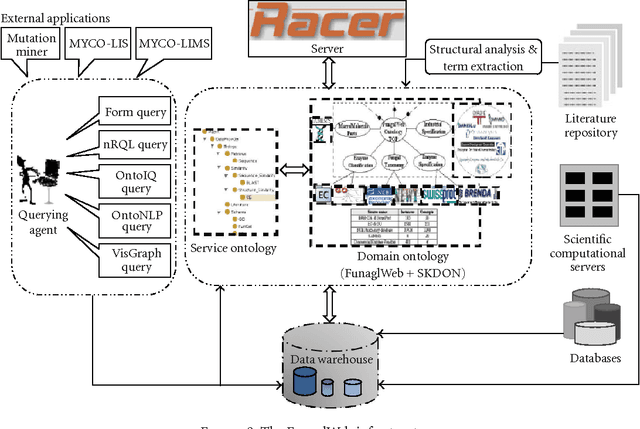
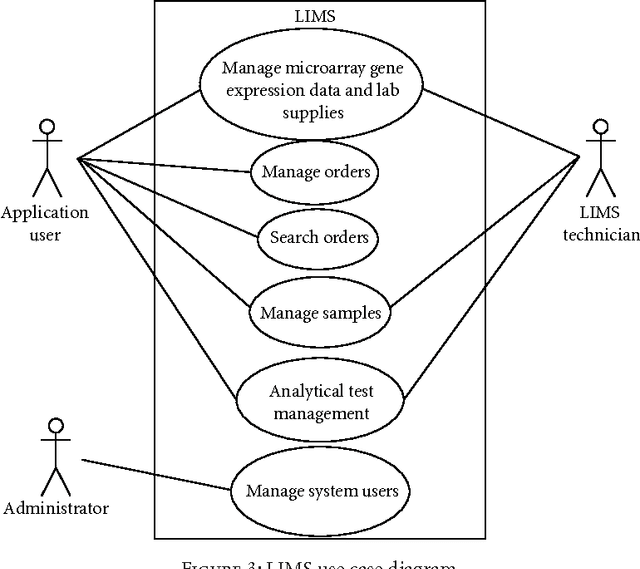
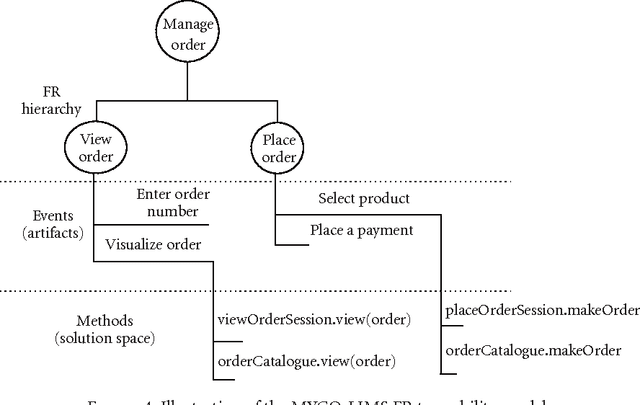
Abstract:Requirement volatility is an issue in software engineering in general, and in Web-based clinical applications in particular, which often originates from an incomplete knowledge of the domain of interest. With advances in the health science, many features and functionalities need to be added to, or removed from, existing software applications in the biomedical domain. At the same time, the increasing complexity of biomedical systems makes them more difficult to understand, and consequently it is more difficult to define their requirements, which contributes considerably to their volatility. In this paper, we present a novel agent-based approach for analyzing and managing volatile and dynamic requirements in an ontology-driven laboratory information management system (LIMS) designed for Web-based case reporting in medical mycology. The proposed framework is empowered with ontologies and formalized using category theory to provide a deep and common understanding of the functional and nonfunctional requirement hierarchies and their interrelations, and to trace the effects of a change on the conceptual framework.
* 36 Pages, 16 Figures
 Add to Chrome
Add to Chrome Add to Firefox
Add to Firefox Add to Edge
Add to Edge